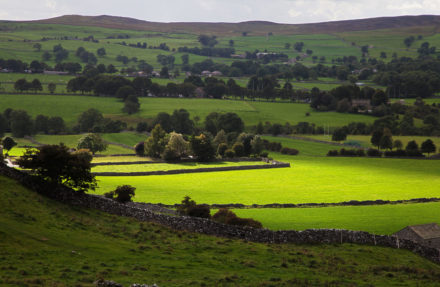
The Labour Party’s history is just as much rural as it is urban. Clement Attlee proudly claimed his government had “not only looked at the countryside as a means of producing food, but as part of our great national heritage of beauty”. But whilst Attlee’s social achievements are the stuff of legend, his rural radicalism – like that of the party’s as a whole – is often overlooked.
It was Attlee’s Chancellor, Hugh Dalton, who drove much of the Attlee government’s countryside policy and earned himself the nickname of ‘the Red Rambler’. During just six years in government Dalton spearheaded the creation of the first ever National Parks, helped establish public rights of way, and designated the Pennine Way.
These and other achievements from Labour were radical, visionary and enduring, built on the understanding that the countryside should be for everyone, with spending on conservation and rural areas a vital investment for the future. Dalton built on a rich lineage of the left’s rural activism, from the mass trespass at Kinder Scout to the 1935 Labour pamphlet that promised ‘beauty for all, not merely beauty for a few’.
It is in that spirit that Labour must act to secure the future of our countryside today. Just as Attlee and Dalton sought to rewrite British society after the Second World War, so there is now the opportunity for the party to set out its new vision for our countryside as the UK sets its first agricultural policy in 45 years.
The Fabian Society’s recent report, Labour Country, set out the party’s rural origins, but also highlighted the stark electoral realities that years of rural policy neglect had created: put simply, the more rural the area, the greater the Conservative lead. To bridge this gulf Labour needs to treat the countryside with the same level of vision and ambition as it might for the NHS or the economy.
It’s clear too that Michael Gove has seized the agenda, but this does not mean Labour should resign itself to reactive comment, but should instead be a challenge to present its own vision. Where the Conservatives are silent on key areas such as the amount of funding available post-2022 and transitional support for farmers, a comprehensive Labour policy could highlight these cracks.
It is not just electoral necessity that demands Labour take agriculture and rural policy seriously. As we leave the Common Agricultural Policy, the need for fundamental reform could not be clearer. Since 1970, farmland birds have declined by 54 per cent since 1970, whilst soil erosion in England and Wales costs £1.2bn annually. Climate change will hasten the decline further. Without concerted action, environmental degradation will make farming itself impossible, whilst the current system’s payment per each acre owned represents billions of pounds of wasted potential.
To really transform our countryside, Labour must focus on those public benefits that the market ignores, which have real and tangible benefits for society. Just as Labour’s industrial policy is ‘mission-oriented’, so too must direct investment in our rural economy be, via a new land management policy.
Whatever the arch-Brexiteers might pretend, without the state the markets won’t trickle down to achieve the change needed on recovering nature, tackling climate change or protecting rural heritage. Neither will market forces provide the impetus for widening public access to our countryside or protecting landscapes. The principle of public money for public good must therefore be at the heart of Labour’s policy. Indeed, Jeremy Corbyn’s 2015 campaign called for subsidies to go to “farmers engaging in the most ecological sustainable practices, not those with the largest landholdings”.
Under such a principle, Labour could use its land-use policy to revitalise rural communities. In the spirit of the Red Rambler, it could pioneer a universal right to access, paying farmers to open up their land. It could prioritise the restoration of natural environments and landscapes, with the significant boost for local economies through tourism and new jobs. It could prepare our countryside to tackle climate change, complementing its pledges for energy and industry.
Just as a Labour policy should pay for those goods it values but the markets ignore, so too must it commit to reform those markets that exist but don’t work fairly. The flaws of the food markets are well-known, with the big buyers and supermarkets wielding all the power. But rather than inefficiently ploughing money into food production, Labour should be willing to take on vested interests and use the tools at its disposal – including the Groceries Code Adjudicator – to make the markets work for producers.
The final, and perhaps most important aspect is finance. National Parks are lasting legacies of Attlee and Dalton’s vision. But their funding has been subject to cuts and the whims of the Treasury. Land management is necessarily long-term – a farmer cannot plan what they grow if the funding is uncertain. Instead, Labour should guarantee that funding would be set on a long-term scale, driven by tangible objectives for public goods, not political vagaries.
In 2018 Labour has a once-in-a-generation chance to transform our countryside to benefit the many, not the few, improving our environment, our rural economies and public enjoyment of the countryside. But to do so it must restore the rightful role of rural policy, and follow the rich, radical history of Labour’s country campaigners who led with transformative visions for society.
Adam Dyster is an environmental campaigner and former National Organiser for SERA – Labour’s Environment Campaign.




More from LabourList
‘If Labour is serious about upskilling Britain, it must mobilise local businesses’
Stella Tsantekidou column: ‘What are we to make of the Labour Together scandal?’
Unitarisation risks weakening local democracy unless communities are put in the driving seat’